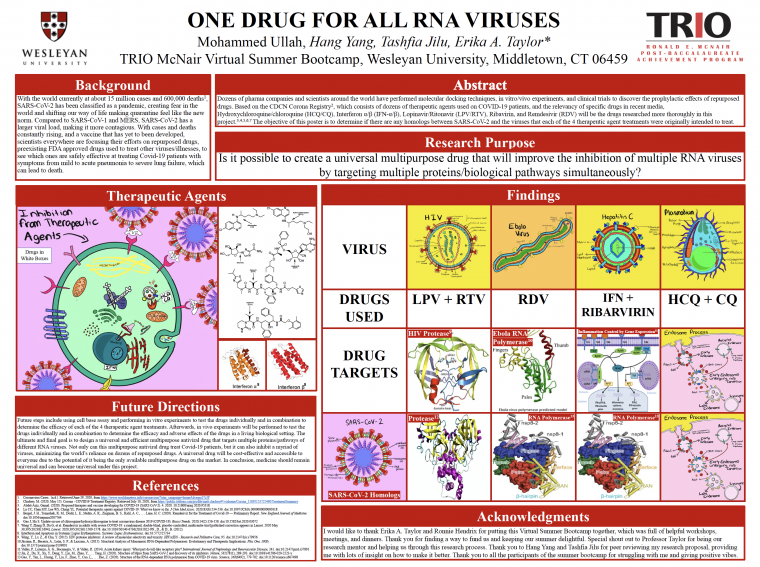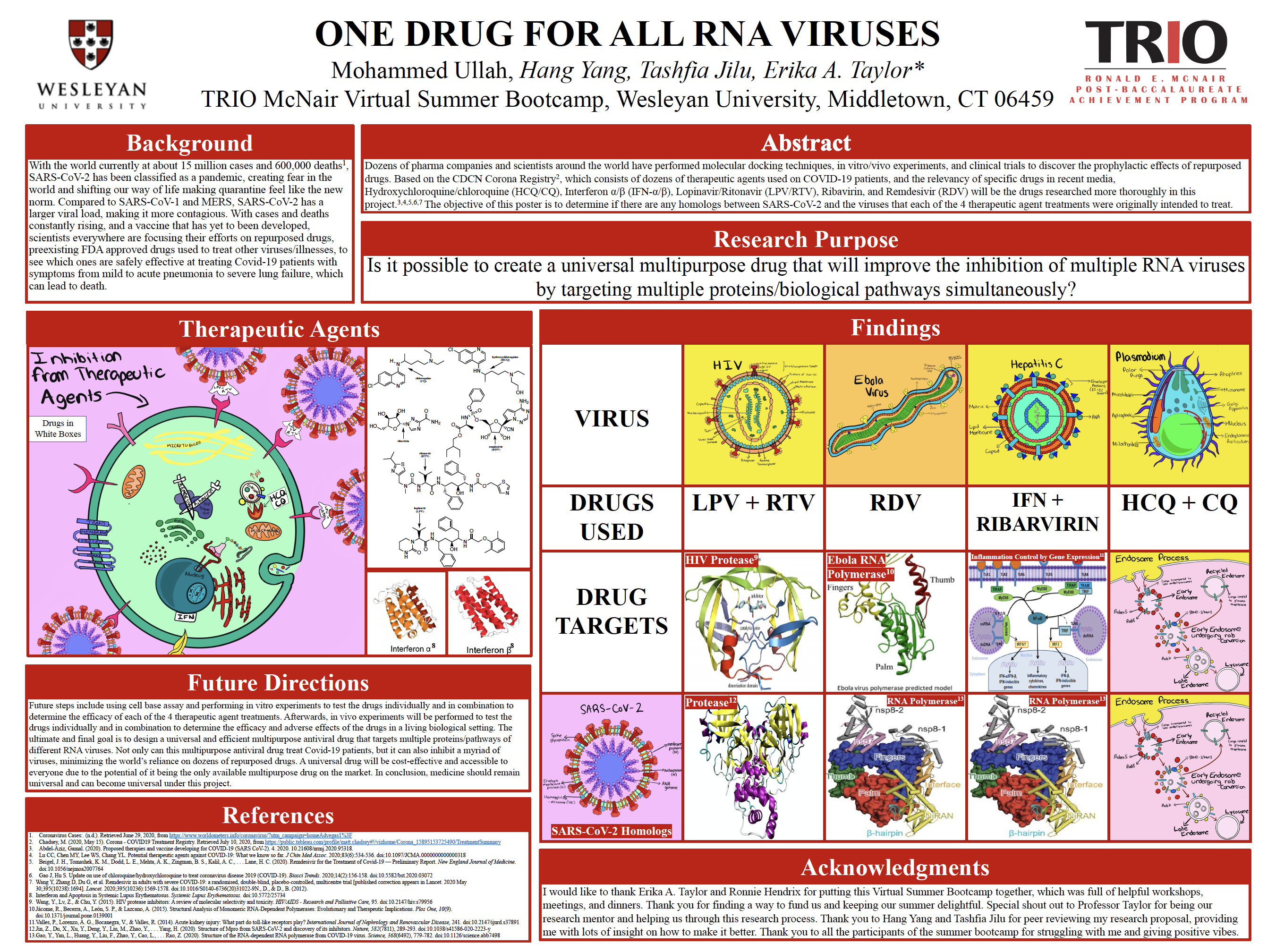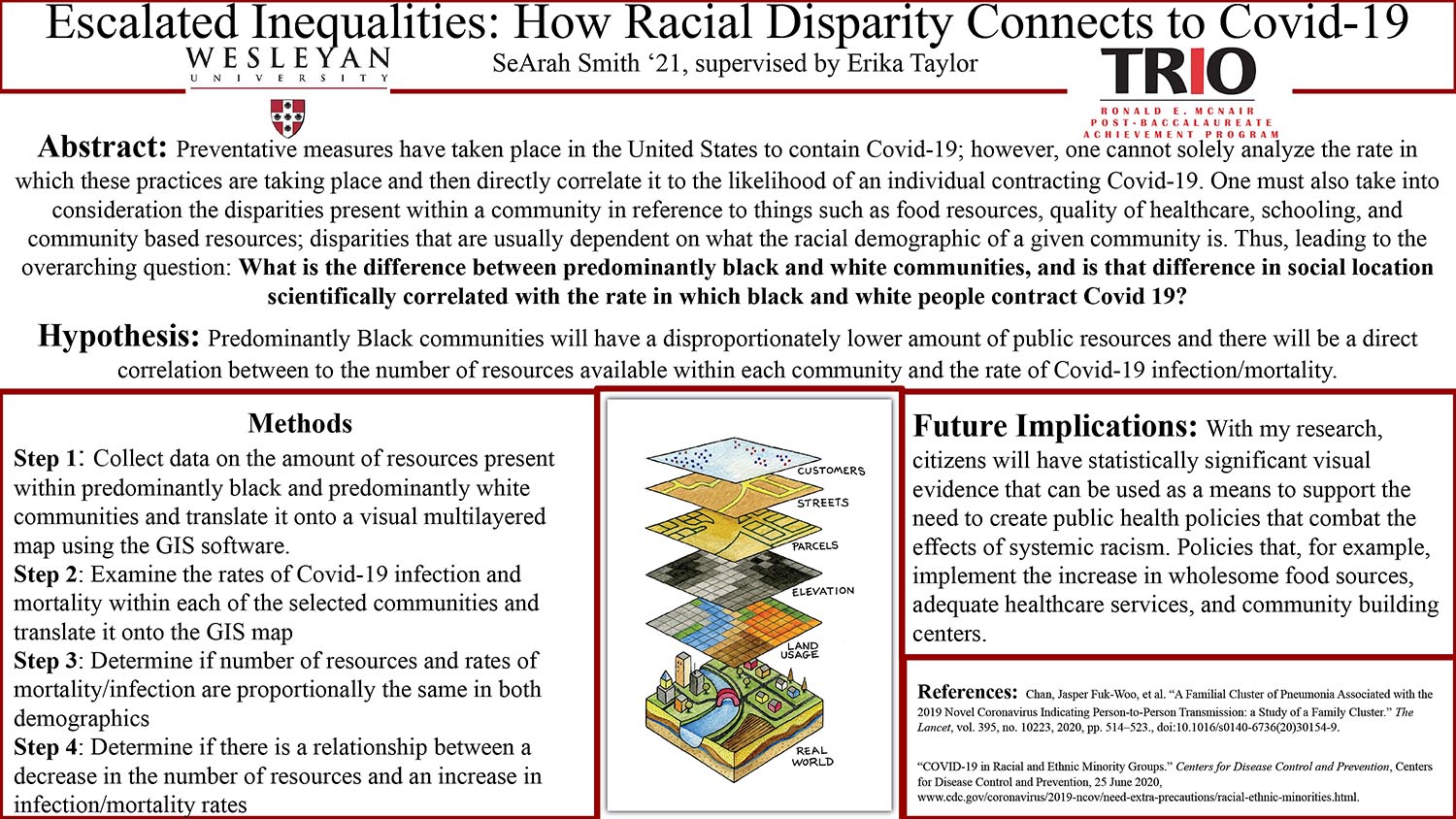Students Accelerate Their Research Skills through New Summer Bootcamp


This summer, 12 Wesleyan students who identify as first-generation/low-income learned more about research methods and proposal-writing through the first McNair Bootcamp.
Held in conjunction with Wesleyan’s Ronald E. McNair Post-Baccalaureate Program and the Wesleyan Mathematics and Science Scholars (WesMaSS) Program, the bootcamp provided a solution for summer research students who were unable to transition their in person research projects into remote research during the COVID-19 pandemic.
“You certainly don’t want students doing organic chemistry in their kitchens back home,” said bootcamp co-founder Erika Taylor, associate professor of chemistry. “Many types of research aren’t able to be translated to ‘virtual research’ in response to campus closing down, so we wanted to make sure these students didn’t have a ‘lost summer’ with respect to their growth as researchers.”
Taylor and Ronnie Hendrix, associate director of the McNair Program, focused their new program on teaching students how to conduct independent research. Students learned to brainstorm, build hypotheses, work collaboratively with peers, write a research proposal based on the criterion of the National Science Foundation’s Graduate Research Fellowship Program application, peer-review a research proposal, edit and improve a research proposal, and ultimately craft and present a research poster.
All bootcamp participants conducted studies on a COVID-19 topic related to their research interests, ranging from computer science to psychology. Among the explored topics were “Mesenchymal Stem Cells as a Therapeutic Treatment for COVID-19 Pneumonia”, “Unmasking Racial Bias in COVID-19-Related Facebook Ads”, “Escalated Inequalities: How Racial Disparities Connect to Covid-19”, “Examination of Population Density Exacerbated Anxiety and Depression during the COVID-19 Pandemic”, “Investigation of IFN-mediated Immune Response in the Development of Antiviral Therapy for COVID-19”, and more.
McNair Fellow Mohammed Ullah ’22 shared his hypothetical project proposal “One Drug for All RNA Viruses,” which would explore the possibility of creating a universal, multipurpose drug that will improve the inhibition of multiple RNA viruses (including COVID-19) by targeting multiple proteins/biological pathways simultaneously. Ullah suggests researching the drugs Hydroxychloroquine/chloroquine, Interferon α/b, Lopinavir/Ritonavir, Ribavirin, and Remdesivir to determine if there are any homologs between SARS-CoV-2 and the viruses that each of the four therapeutic agent treatments were originally intended to treat. He and other bootcampers presented their work at the Summer 2020 Research Poster Session, held online.
“I was always interested in drug design and pitched this idea, and Professor Taylor guided me throughout the process, helping me learn how to read scientific literature, understanding certain concepts, and helping me with constant revisions of my proposal drafts,” Ullah said. “This is an idea that I look forward to expanding when I pursue a PhD or work in the industry.”
Prior to taking the bootcamp, psychology major SeArah Smith ’21 felt the research process was daunting.
“Unfortunately, I never had a formal tutorial on the foundations of creating a research project within the field of psychology; however, with the help that I received from my mentor and the fellow interns, I am now very confident in my ability to create a thought out research project,” Smith said. “With the help of our research methods classes, small group meetings, and workshops I was able to re-establish my relationship with research. Now I’m very excited to use this newfound information when I conduct my own psychology research at Wesleyan and graduate school.”
Bootcamp participants also assisted in crowd-sourced research through the zooniverse.org platform, so that they would be able to participate in observing, categorizing, and recording data.
“We were definitely making lemonade from our COVID-19 lemons,” Taylor said. “The projects students completed were amazing and addressed really interesting aspects of how COVID-19 impacts all kinds of things. Even seasoned researchers said that it helped them learn research fundamentals that they had never been explicitly taught in their labs.”


